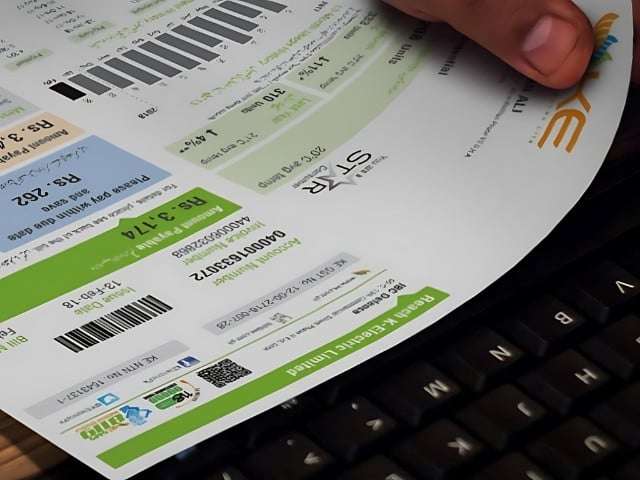
|
Getting your Trinity Audio player ready...
|
Introduction
In a bid to offer some relief to power consumers, the National Electric Power Regulatory Authority (NEPRA) has reviewed a petition by the Central Power Purchasing Agency-Guarantee (CPPA-G) regarding the fuel cost adjustment (FCA) for the month of December 2024. The FCA adjustment could reduce the electricity price by Rs1.03 per unit, providing much-needed relief to electricity consumers in February 2025. However, the adjustment will not apply to lifeline consumers, electric vehicle charging stations, and customers of K-Electric.
Overview of the Petition for Fuel Cost Adjustment
On the heels of rising electricity costs and economic concerns, CPPA-G submitted a petition requesting NEPRA’s approval for the adjustment. If approved, this tariff reduction is expected to reduce the financial burden on electricity consumers. The fuel cost adjustment is one of the key methods used to regulate the power sector’s financial impact on consumers, and in this case, it comes as a welcome change after months of soaring energy prices.
The government’s winter package has also had a positive effect on reducing electricity prices in December, as energy costs dropped due to seasonal measures. However, a major point of concern during the NEPRA hearing was the non-functioning of the 969-megawatt Neelum-Jhelum hydropower plant, which has led to increased electricity prices for consumers.
Impact of Non-Operational Neelum-Jhelum Hydropower Plant
The closure of the Neelum-Jhelum hydropower plant, which has been non-operational for months, has worsened the situation for consumers. Had the plant been operational, it could have provided cheaper electricity, which would have further alleviated the strain on the national grid. The absence of this power source has directly impacted the affordability of electricity.
A government official, who attended the public hearing, confirmed that the Neelum-Jhelum plant’s non-functioning is a major factor in the high fuel cost adjustment. While the government has taken steps to address the power shortage, the prolonged shutdown of the Neelum-Jhelum project is a persistent issue, and its long-term impact on consumers remains concerning.
Electricity Prices and Other Factors
Although there is a general reduction in fuel prices, electricity consumers still face challenges due to other operational inefficiencies in the system. Another notable issue raised during the hearing was the non-operation of the 747 MW Guddu power plant. The plant’s failure to run efficiently has been contributing to higher electricity costs.
CPPA-G officials, when questioned about the Guddu plant, failed to provide an adequate explanation. As one consumer noted, inefficiencies in the system become even more apparent during harsh weather conditions. Whether it’s excessive heat or rainfall, the electric grid frequently experiences breakdowns. This situation is made worse by the continuous closure of power plants and the country’s dependency on expensive energy sources like natural gas and coal.
Electricity Generation in December 2024
As per the data submitted by CPPA-G, electricity generation in December 2024 saw nuclear power plants playing a key role in reducing overall costs. Nuclear energy accounted for 26.48% of the total electricity generation, with a contribution of 2,065 gigawatt hours (GWh). This was followed by hydroelectric power, which provided 22.8% of electricity generation, and re-gasified liquefied natural gas (RLNG)-based power plants that contributed 20.7%.
With fossil fuel sources like natural gas and coal remaining costly, nuclear energy continues to serve as a backbone for Pakistan’s energy strategy. Nuclear energy offers a more affordable and environmentally friendly solution compared to conventional energy sources.
The Role of Nuclear Energy in Power Supply
Nuclear energy remains one of the most cost-effective and environmentally friendly energy options for Pakistan. Despite facing challenges in the broader power sector, nuclear energy has made significant strides. In January 2025, nuclear power generation remained a top contributor to the national grid, supplying 20.78% of electricity, which amounted to 1,728 GWh.
The importance of nuclear energy cannot be overstated. The contribution of nuclear power to the national grid has steadily increased, and its share of total energy generation reached over 27% in December 2022. With the global push for cleaner and more sustainable energy, nuclear power is poised to play an even more significant role in Pakistan’s energy strategy moving forward.
Nepra’s Previous Decisions on Electricity Tariffs
In addition to the expected Rs1.03 reduction, NEPRA has previously made tariff adjustments in favor of consumers. For instance, the regulatory body announced a reduction in electricity tariffs of up to 75 paisa per unit for consumers of ex-Wapda distribution companies (DISCOs) and K-Electric, in line with fuel cost adjustments for the months of October and November 2024.
For DISCOs, NEPRA approved a tariff cut of Rs0.7556 per unit in response to fluctuations in fuel prices during November 2024. Similarly, K-Electric consumers saw a reduction of Rs0.4919 per kilowatt-hour (kWh) for October 2024. These adjustments are expected to provide consumers with some financial respite.
Addressing Transmission and Transformation Losses
Another critical issue raised during the public hearing was the transmission and transformation (T&T) losses reported by the National Transmission and Despatch Company (NTDC). In November 2024, NTDC reported provisional T&T losses of 244.158 GWh, equivalent to 2.946%, which directly affects the efficiency of electricity distribution. For the Pak Matiari-Lahore Transmission Company’s (PMLTC) high-voltage, direct-current line, T&T losses stood at 3.391%.
Such losses raise concerns regarding the efficiency of the transmission infrastructure, which remains one of the key obstacles in delivering reliable electricity to consumers. The government and regulatory bodies must address these losses to improve the overall quality of service and reduce costs for consumers.
FAQs
1. What is fuel cost adjustment (FCA)?
Fuel cost adjustment (FCA) is a regulatory mechanism used by energy authorities to adjust the price of electricity based on fluctuations in fuel costs. It helps ensure that the energy provider can recover fuel-related expenses from consumers.
2. Will the Rs1.03 reduction apply to all consumers?
No, the tariff reduction will not apply to lifeline consumers, electric vehicle charging stations, and K-Electric customers.
3. Why is the Neelum-Jhelum hydropower plant important?
The Neelum-Jhelum plant is essential because it provides cheap electricity, and its non-functioning has led to higher fuel costs for consumers.
4. How much electricity did nuclear power contribute in December 2024?
Nuclear power contributed 26.48% of the total electricity generation in December 2024, producing 2,065 GWh of electricity.
5. What impact did the Guddu power plant’s non-operation have?
The non-operation of the Guddu power plant led to higher electricity costs due to reduced generation capacity, adding to the financial burden on consumers.
Conclusion
The Rs1.03 relief per unit in electricity prices represents a positive move in addressing the financial challenges faced by power consumers. However, issues like the non-operation of power plants and inefficiencies in the transmission system continue to affect electricity costs. As Pakistan navigates its energy crisis, nuclear power remains a crucial part of the country’s strategy to reduce dependence on expensive and environmentally harmful energy sources.






